Approximately, 280 million individuals globally go through a mental health issue such as depression. According to research, bad air quality impacts mental well-being in several ways. Of course, air quality plays a key part in our physical and mental health. So, poor air quality affects both our lungs and our mood, brain, and overall mental health. This poses a big question: how does air quality can impact mental health?
The link between air pollution and mental health is more notable than many notice, with studies relating air pollution to anxiety, depression, and cognitive decline. In this guide, we’ll dive into the connection between air quality and mental health, concentrating on how air pollution can support problems such as depression and anxiety. Also, we’ll explore practical solutions like dehumidifiers to enhance air quality and make healthier spaces, both physically and mentally.
How Air Quality Can Impact Mental Health?
Air pollution holds dangerous particles like fine particulate matter (PM2.5), volatile organic compounds (VOCs), and nitrogen dioxide (NO₂). These toxins get into our respiratory system and bloodflow, ultimately reaching the brain. Extended display can disturb neurological functions, paving the way to mental health complications.
According to research, cities with great levels of air pollution reveal more cases of anxiety, depression, and other mood disorders. For instance, fine particulate matter from vehicle exhaust or industrial discharges can lead to inflammation in the brain, which might provoke cognitive impairment and emotional imbalance.
How air quality can impact mental health? Bad air quality directly affects the brain working. Typically, contaminants result in oxidative stress and inflammation in the brain, damaging regions linked with emotional regulation and memory. This is why air pollution and depression mostly go side by side.
A recent study indicates that long-term subjection to polluted air maximizes the possibility of developing mental health issues specifically in children and adolescents. The analysis of the study confirms that air pollution is linked with a higher chance of suicidal behaviors and air pollution depression signs.
Besides, numerous researches highlight the relation between air pollution and mental health. For example, a Harvard study published in March 2023 multiplies the proof linking vulnerability to air pollution to a higher possibility for dementia. Another study revealed that bad air quality can result in lowered serotonin levels, a neurotransmitter in charge of mood stability.

How Does Humidity Contribute to Poor Air Quality?
High humidity makes an ideal atmosphere for airborne toxins and contaminants to increase. Excessive dampness fosters the growth of mold, dust mites, and bacteria, which put down air quality. These toxins can stimulate respiratory problems, boost stress levels, and even present mental health issues. The link between air pollution and mental health becomes evident when high humidity worsens the existence of contaminants. Also, too much humidity makes the air feel heavier, causing discomfort and difficulty focusing. This disturbance influences mental clarity and emotional health.
Mold increases in damp settings. Subjection to mold germs in the air can cause physical signs such as fatigue, headaches, and respiratory issues. These physical problems mostly raise mental pressure, generating feelings of anxiety or depression. Air pollution depression is a growing interest in houses with bad ventilation or extra humidity, where mold germs gather. Therefore, when you handle high humidity, you lower the risk of mold-related stress and enhance overall indoor air quality.
Excessive humidity disturbs sleep by developing a distressed sleeping atmosphere. Bad sleep affects cognitive function, mood, and emotional flexibility. In the long run, messed-up sleep cycles can provoke depression and anxiety.
Signs Poor Air Quality May Be Affecting Your Mental Health
Poor air quality can notably influence your mental health, mostly presenting through several physical and emotional signs. Constant fatigue is a regular symptom, as inhaling contaminated air lowers oxygen levels in the blood, leading to exhaustion and mental burden.
Increased humidity and airborne toxins can overprovoke the nervous system, boosting irritability, anxiety and even presenting problems such as air pollution depression. Besides, cognitive difficulties, like brain fog and difficulty focusing often originate from extended exposure to irritants and allergens, particularly when combined with poor sleep. Also, frequent respiratory problems or allergies show compromised air quality.
How Dehumidifiers Improve Air Quality and Mental Health
Investing in dehumidifiers is one of the most efficient ways to improve air quality along with mental health. Here’s how:
Controlling Humidity: Dehumidifiers are a necessity for sustaining balanced indoor humidity levels. High humidity both devalues air quality and creates an uncomfortable atmosphere. So, by eliminating extra dampness, a dehumidifier lowers the risk of mold formation, dust mites, and other toxins. Cleaner air promotes both mental and physical health, decreasing the likelihood of problems such as irritability, fatigue, and air pollution depression.
Cleaner, Healthier Air: Dehumidifiers function by lowering airborne pollutants that increase in damp conditions. With little humidity, allergens and contaminants are less likely to spread, bringing fresher, healthier air. This directly affects your mental well-being by making a space where you can breathe freely and feel relaxed. So, the connection between how does air pollution affect mental health and enhanced air quality highlights the significance of these tools in developing a healthier home atmosphere.
Improved Comfort and Mental Clarity: Excessive humidity mostly generates a muggy, heavy environment, making it difficult to concentrate or relax. Of course, dehumidifiers improve coziness by stabilizing moisture levels, fostering mental clarity, and lowering stress. When your atmosphere feels good, your mood and performance naturally enhance. This emphasizes the value of dehumidifiers in attaining optimal mental health.
Best Solutions for Your Home: For areas such as crawlspaces and basements where humidity likes to gather, consider running basement and crawlspace dehumidifiers. These models are tailored to manage consistent moisture problems, guaranteeing expected air quality throughout your home. For bigger or more commercial needs, industrial-grade dehumidifiers offer strong solutions, offering peace of mind and healthier living spaces.

Simple Ways to Breathe Better and Feel Better at Home
Developing a healthy indoor atmosphere doesn’t have to be difficult. With some tactical steps, you can upgrade air quality and support better mental health. Below is the detail:
Bring in Houseplants
Houseplants serve as natural air purifiers, sucking contaminants and secreting oxygen. Famous air-purifying plants such as spider plants, snake plants, and peace lilies are best for enhancing indoor air quality. While plants cannot replace a dehumidifier or air purifier, they add a calming, natural touch to your home and help create a healthier atmosphere.
Regular HVAC Maintenance
Your HVAC system plays a significant role in maintaining indoor air quality. So, schedule routine inspections and cleanings to ensure the system is working efficiently. A well-maintained HVAC system prevents the circulation of dust, allergens, and pollutants that can contribute to air pollution depression, and other health issues.
Declutter Your Space
Clutter can trap dust and create areas where allergens accumulate. Regularly cleaning and arranging your living spaces improves air circulation, reduces irritants, and fosters a more peaceful environment. This positively impacts your mental clarity.
Improve Airflow
Keep air circulating throughout your home by opening windows, using fans, or installing ventilation systems. Fresh air helps flush out pollutants, reducing their concentration indoors and improving your overall environment. Additionally, pairing this strategy with a dehumidifier ensures optimal results by controlling excess moisture.
Read on to learn about Should I Turn Off My Crawl Space Dehumidifier in Winter?
Conclusion
The quality of the air you breathe directly impacts your mental health. An awareness of how air quality can impact mental health empowers you to take proactive steps to create a healthier living space. From managing humidity to eliminating airborne pollutants, addressing indoor air quality is essential for reducing stress and fostering mental clarity.
Take the Reigns of Your Indoor Air Quality in Your Hands!
At Baseaire, we offer a wide range of dehumidifiers specifically designed to tackle humidity issues in basements, crawlspaces, and other challenging areas. Our energy-efficient solutions help maintain optimal air quality, ensuring a safer and more comfortable environment. Explore our collection of dehumidifiers and create a home where you can breathe easily and feel your best. Visit Baseaire to find the perfect solution for your needs!

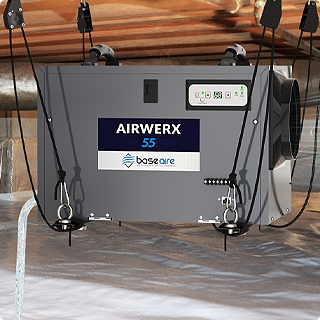
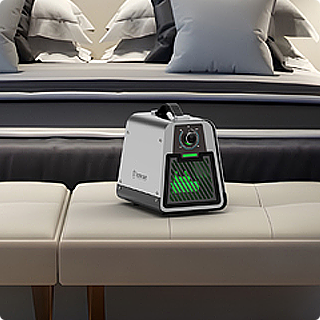
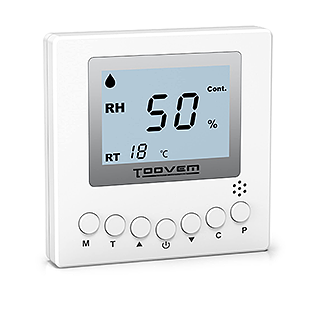
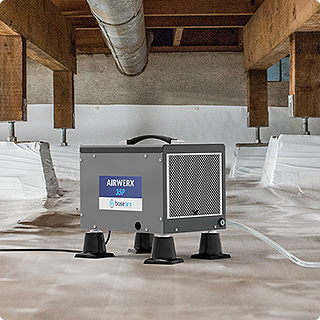
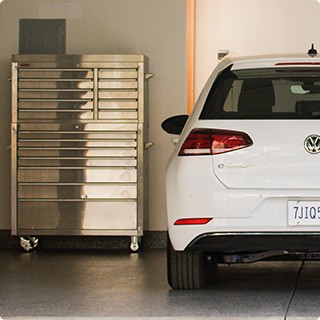




![BaseAire 888 Pro 7,000 mg/h Ozone Generator, Digital O3 Machine Home Ozone Machine Deodorizer - Ozone Generator from [store] by Baseaire - Disinfection, Ozone Generator](http://www.baseaire.com/cdn/shop/products/888-Pro-_-1.jpg?v=1698817267&width=104)
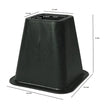






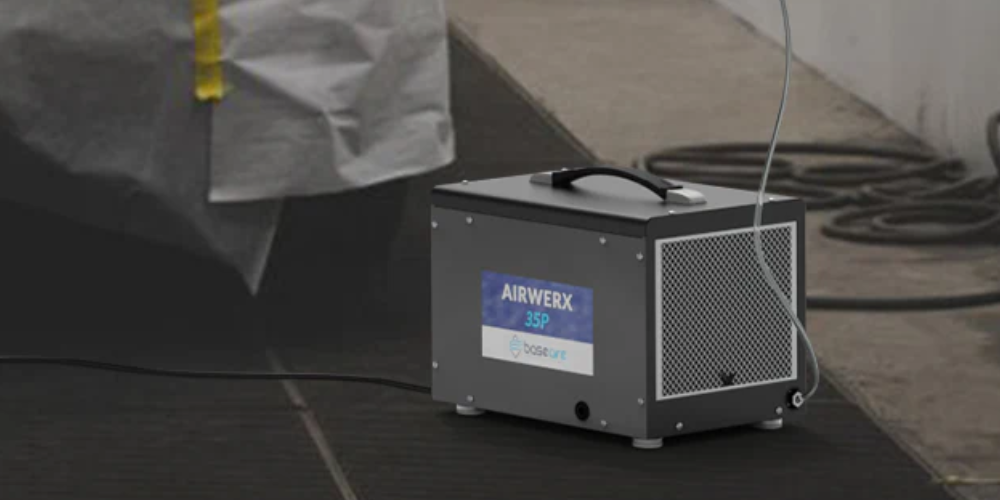




Hinterlasse einen Kommentar
Alle Kommentare werden vor der Veröffentlichung geprüft.
Diese Website ist durch hCaptcha geschützt und es gelten die allgemeinen Geschäftsbedingungen und Datenschutzbestimmungen von hCaptcha.